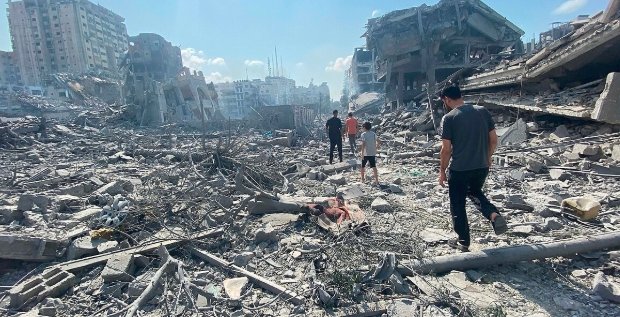Scotland’s government has taken a bold step by halting public funding to weapons manufacturers that supply arms to Israel. First Minister John Swinney announced this move on September 4, 2025, amid growing concerns over the Gaza conflict, while also ordering the Palestinian flag to fly over government buildings and pushing for recognition of Palestine.
Background on the Decision
Scotland’s leader made the announcement during a key speech in parliament. He cited evidence of possible genocide in Gaza as the main reason for the pause in grants and investments to these companies. This comes after months of global outcry over the violence, with Scottish officials stressing that business cannot go on as usual in such times.
The policy requires arms firms to prove they do not supply Israel to get future public support. This shift aims to align Scotland’s economic actions with its stance on human rights. It follows similar calls from activists and aligns with international discussions on arms trade ethics.
Experts note this could affect several companies operating in Scotland, where the defense sector plays a role in the economy. The decision reflects a broader push for accountability in global conflicts.

Impact on Arms Companies
Many arms manufacturers in Scotland rely on government grants for research and development. With this pause, firms linked to Israel must now seek other funding sources or change their business ties. This could lead to job shifts or relocations if companies fail to comply.
The Scottish government has not named specific firms yet, but reports suggest major players in the defense industry might feel the pinch. For instance, companies involved in exporting components used in military operations could see delays in projects.
- Key requirements for arms firms: Prove no direct supplies to Israel.
- Potential outcomes: Loss of grants worth millions in public money.
- Timeline: The pause starts immediately for new awards.
This move might inspire other regions to review their funding policies. It highlights how local governments can influence international arms flows.
Analysts predict short-term economic ripples, but long-term benefits in ethical standing. Scotland’s economy includes a strong tech and manufacturing base, so diversification could help offset any losses.
Broader Context in the Gaza Conflict
The decision ties into the ongoing crisis in Gaza, where reports show high civilian casualties. On the same day as Scotland’s announcement, Israeli forces reported killing dozens in Gaza, pushing deeper into cities. This has fueled global debates on arms sales and humanitarian aid.
Scotland’s parliament voted 65 to 24 to recognize Palestine as a state, urging the UK to follow. This vote shows strong support within Scotland for Palestinian rights. It comes amid calls from various groups for an end to the violence.
| Aspect | Details |
|---|---|
| Casualties in Gaza | Over 40,000 reported dead since October 2023, with recent days seeing 84 killed in 24 hours. |
| Scottish Vote | 65 in favor, 24 against recognizing Palestine. |
| Flag Action | Palestinian flag raised over government buildings as a symbol of solidarity. |
| UK Response | Scotland urges the UK to suspend arms sales and trade talks with Israel. |
These actions build on previous steps, like Scotland’s earlier suspension of meetings with Israeli officials until progress in peace talks. The global arms trade to conflict zones remains a hot topic, with many nations reviewing their policies.
Public sentiment in Scotland has shifted, with protests and campaigns pressuring leaders. This policy could set a precedent for other parts of the UK.
Reactions from Around the World
International media has covered the story widely, praising Scotland’s stance as a moral lead. Some outlets highlight how this pressures the UK government, which has suspended some arms licenses but not all.
Critics argue the move might harm Scotland’s defense jobs, but supporters say it upholds values over profits. In Israel, officials have dismissed such actions, focusing on their security needs.
Within the UK, opposition parties have mixed views. Some back the ethical shift, while others worry about foreign policy splits. Global human rights groups welcome it as a step toward accountability.
What This Means for the Future
This policy could reshape Scotland’s role in international affairs, even with limited powers over foreign policy. It signals a commitment to human rights in economic decisions. Looking ahead, Scotland plans more humanitarian aid to Gaza and diplomatic efforts.
The pause might expand if evidence grows, affecting other countries involved in conflicts. For now, it stands as a clear message against supporting actions seen as genocidal.
As this story develops, share your thoughts in the comments below. What do you think about Scotland’s decision? Spread the word by sharing this article with others interested in global news.


















